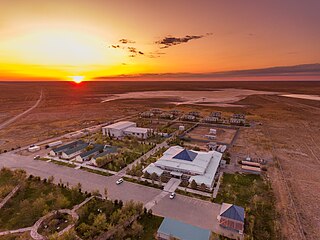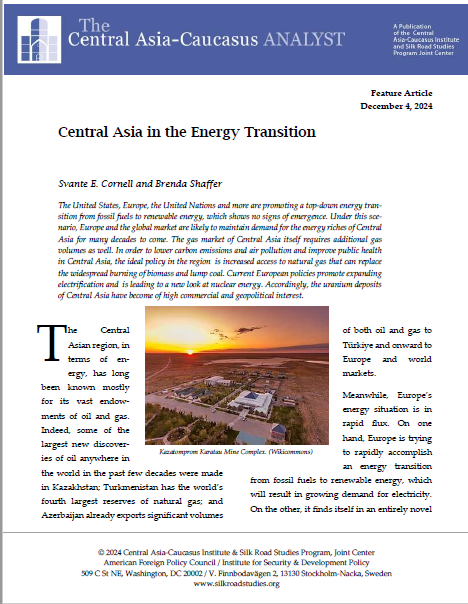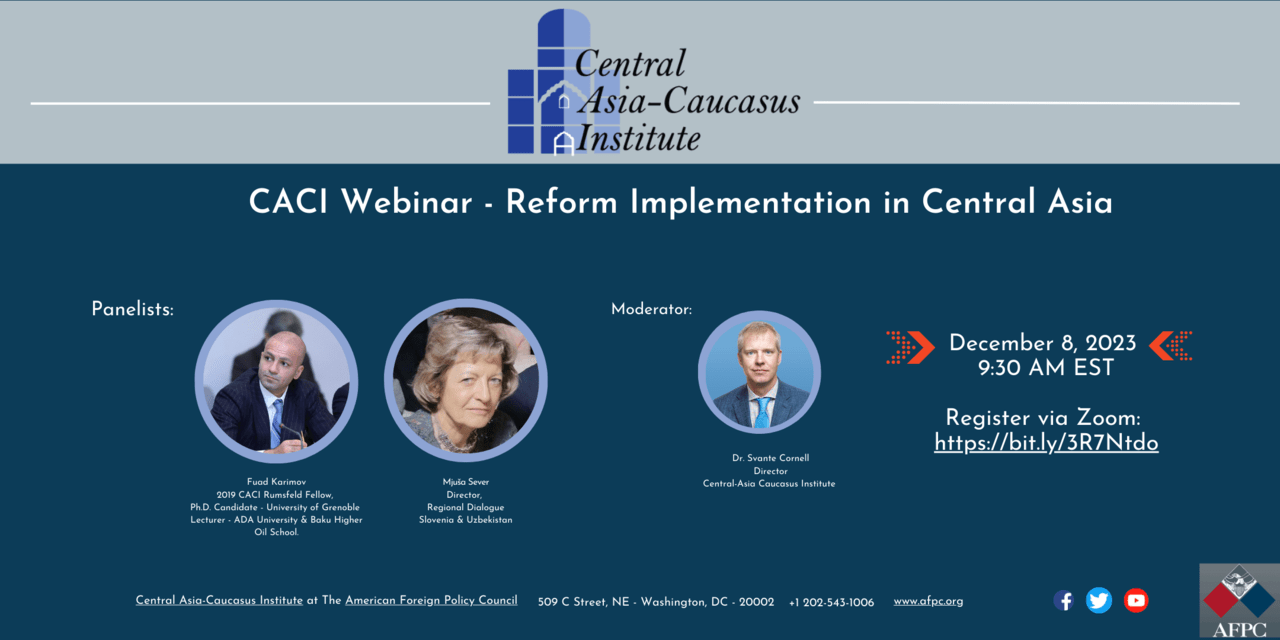Central Asia in the Energy Transition

 Svante E. Cornell and Brenda Shaffer
Svante E. Cornell and Brenda Shaffer
December 4, 2024.
Click to Download
The United States, Europe, the United Nations and more are promoting a top-down energy transition from fossil fuels to renewable energy, which shows no signs of emergence. Under this scenario, Europe and the global market are likely to maintain demand for the energy riches of Central Asia for many decades to come. The gas market of Central Asia itself requires additional gas volumes as well. In order to lower carbon emissions and air pollution and improve public health in Central Asia, the ideal policy in the region is increased access to natural gas that can replace the widespread burning of biomass and lump coal. Current European policies promote expanding electrification and is leading to a new look at nuclear energy. Accordingly, the uranium deposits of Central Asia have become of high commercial and geopolitical interest.
Watch: 4/23 Rumsfeld CAMCA Spring '24 Fellows Presentation: Advancing Digital Interconnectivity in CAMCA Region
A presentation by the Spring 2024 CAMCA Fellows, focusing on the advancement of digital connectivity in Central Asia, Mongolia, the Caucasus, and Afghanistan. In the interconnected landscape of the CAMCA region, digital connectivity serves as a cornerstone for both economic prosperity and social progress. This event is not merely about enhancing digital infrastructure; it's about fostering deeper connections across the region. The Fellows will delve into how overcoming challenges is crucial for unlocking economic potential, ensuring equitable access, and driving regional integrati
Register for the 2024 CAMCA Conference - June 12-13 - Bishkek, Kyrgyzstan
Register for the annual Central Asia - Mongolia - Caucasus - Afghansitan (CAMCA) Regional Forum scheduled for June 12-13 in Bishkek, Kyrgyzstan. The CAMCA Regional Forum is a non-political and non-partisan Forum established to promote region-wide discussions on means of advancing economic growth and development in the 10 countries of the region: Afghanistan, Armenia, Azerbaijan, Georgia, Kazakhstan, Kyrgyzstan, Mongolia, Tajikistan, Turkmenistan and Uzbekistan. It promotes this goal by fostering dialogue and interaction among rising young leaders from all sectors in the 10 countries of the region, as well as with international leaders and stakeholders. The Forum organizers - the CAMCA Network, Central Asia-Caucasus Institute and the Rumsfeld Foundation - believe that expanded communication and collaboration among talented professionals from a range of fields can significantly contribute to economic, political and social development on both a national and regional basis.
The Forum is a premier opportunity to engage with prominent influencers and leaders in the CAMCA region and to gain firsthand insights on the region’s pulse and latest developments. The Forum’s non-political and non-partisan mission facilitates an environment for open conversation aimed toward the prosperity of the region and its people. The Forum was established as one of the first and only platforms to bring together representatives of the 10 CAMCA countries, spanning from the South Caucasus to Mongolia, to discuss emerging opportunities for regional cooperation and integration. Due to the diverse and impressive pool of participants, the Forum essentially serves as a ‘one-stop shop’ for professionals of all sectors who are interested in regional cooperation and partnerships, as well as for outside nations, businesses and organizations that have an interest in engaging with the region.
Click here for more information and to register.
Watch the 12/8 CACI Webinar - Reform Implementation In Central Asia

Central Asian governments, particularly Kazakhstan and Uzbekistan, have embarked on a series of reform initiatives in recent years. Announcing far-reaching reforms is one thing, but implementation is another. This CACI webinar delves into the question how the process of implementation of reform agendas is processing.
PANELISTS:
- Mjusa Sever, Director, Regional Dialogue, Slovenia & Uzbekistan
- Fuad Karimov, 2019 CACI Rumsfeld Fellow, Ph.D. Candidate - University of Grenoble and Lecturer - ADA University & Baku Higher Oil School
MODERATER:
- Dr. Svante Cornell, Director, Central Asia-Caucasus Institute
Watch the video below or on YouTube
The Changing Geopolitics of Central Asia and the Caucasus


